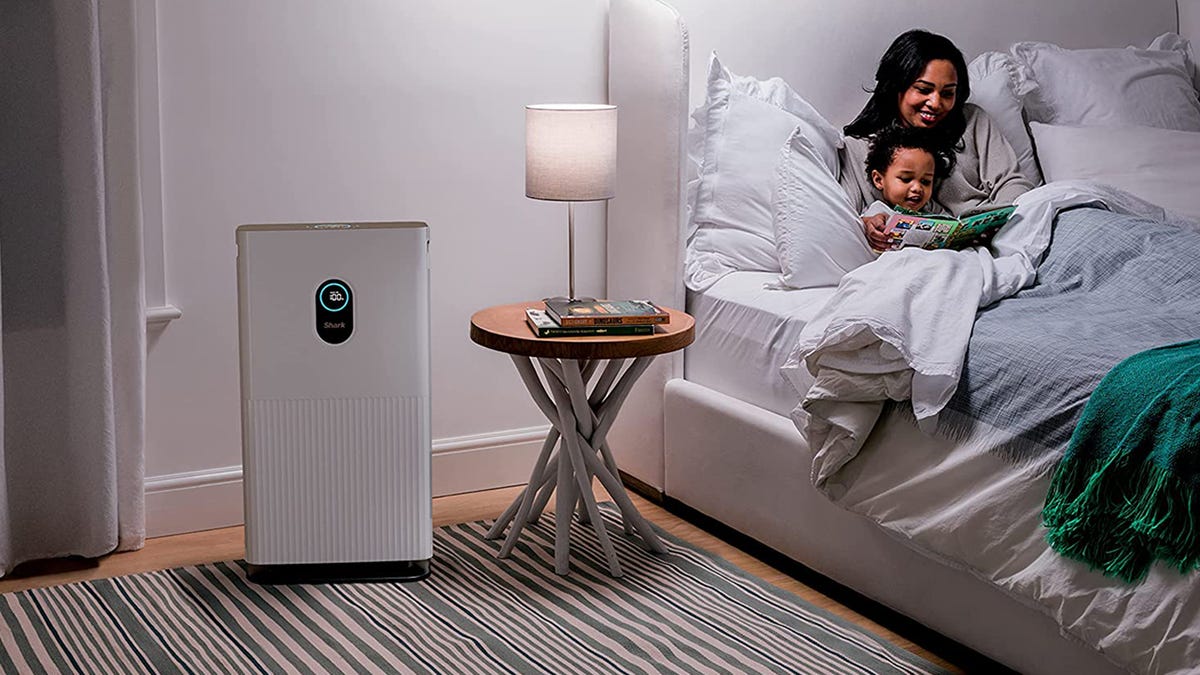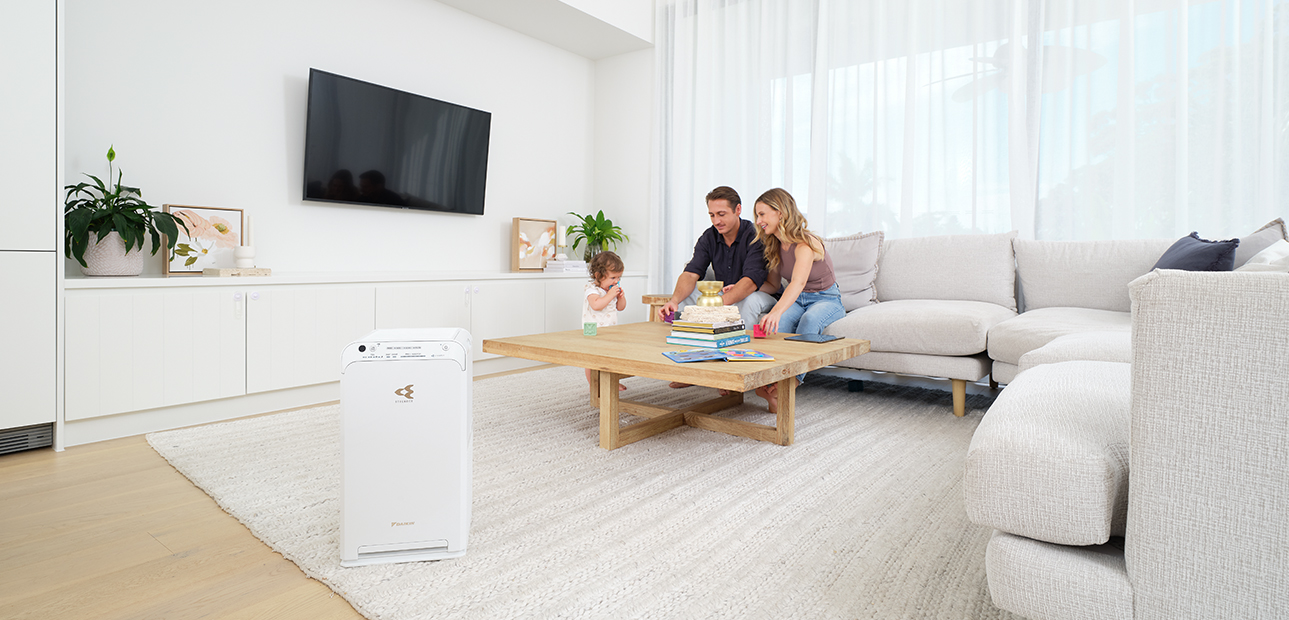Featured
Table of Contents
- – Comprehending Allergic Reactions and Triggers
- – Can Air Purifiers Assist With Allergies?
- – The Scientific Research Behind Air Purifiers ...
- – Are Air Purifiers Right for You? Variables to...
- – Taking advantage of Air Purifiers for Allergies
- – Beyond Air Purifiers: A Multi-Pronged Approach...
- – Living a Breath Easier Life with Allergies

For allergic reaction victims, springtime blooms and fluffy pet dogs can bring even more sniffles and sneezes than pleasure. Indoor irritants like dirt mites, pet dog dander, and plant pollen can unleash chaos on your respiratory system, leaving you really feeling unpleasant. Air purifiers are usually promoted as a service, promising cleaner air and remedy for allergic reaction signs. However are air purifiers absolutely worth the financial investment for allergic reaction patients? This detailed guide checks out the scientific research behind air purifiers, their effectiveness for allergic reactions, and the factors to think about when choosing.
Comprehending Allergic Reactions and Triggers
To understand the duty of air cleansers, let's initial explore allergic reactions and their triggers:
- The Sensitive Response: Allergies take place when your body immune system overreacts to a safe compound, like plant pollen or dust mites. This response sets off the release of histamines, triggering allergy symptoms like sneezing, coughing, itchy eyes, and a dripping nose.
- Typical Irritants: Indoor allergens include dirt mites, pet dander, mold spores, pollen that drifts indoors, and even cockroach irritants. These air-borne fragments can irritate your respiratory tracts and trigger allergy signs and symptoms.
Can Air Purifiers Assist With Allergies?
Air purifiers function by pulling in air, removing pollutants, and launching cleaner air back into the space. Here's how they can potentially profit allergic reaction patients:
- Trapping Irritants: HEPA (High-Efficiency Particulate Air) filters, an usual type used in air cleansers, are extremely efficient at recording air-borne irritants like dust termites, animal dander, and pollen. By getting rid of these triggers from the air you take a breath, air cleansers can assist decrease allergy signs.
- Improved Air High Quality: Air cleansers can also get rid of various other toxic irritants from the air, such as smoke, dirt, and volatile organic substances (VOCs) This total renovation in air quality can be useful for allergic reaction victims who are delicate to these additional triggers.
The Scientific Research Behind Air Purifiers and Allergies
Researches have shown that air cleansers can be helpful in lowering allergic reaction signs. Right here's a take a look at some crucial study findings:
- A 2019 testimonial released in the journal "Present Allergy and Asthma Records" ended that air purifiers with HEPA filters can be efficient in reducing allergic reaction signs and improving quality of life for individuals with hay fever (hay fever)
- A 2018 study released in the journal "Annals of Allergic Reaction, Asthma & Immunology" located that making use of an air purifier with a HEPA filter in the bedroom dramatically lowered dirt mite allergen levels and improved sleep high quality in people with asthma.
Nonetheless, it is very important to keep in mind that research study additionally recommends some limitations:
- Air Purifier Insurance Coverage: Air cleansers are most reliable in the room where they are positioned. Their effect on irritants in other parts of the home might be marginal.
- Seriousness of Allergies: While air purifiers can aid, they might not be a total solution for severe allergies. Medications and other allergy management techniques could still be required.
Are Air Purifiers Right for You? Variables to Think About
Below are some essential factors to take into consideration when determining if an air purifier deserves it for your allergic reactions:
- Extent of Allergies: If your allergies are moderate and well-controlled with medication, an air purifier may not be needed. Nevertheless, for those with modest to serious allergies, an air purifier can be a beneficial device in managing symptoms.
- Kinds of Irritants: Take into consideration the main triggers for your allergies. Air purifiers are most reliable for airborne irritants like dirt mites, animal dander, and plant pollen. They could not be as practical for allergens like mold and mildew that grow on surfaces.
- Way of living and Atmosphere: If you have pets, reside in a location with high pollen matters, or have worries regarding interior air high quality, an air purifier can be beneficial.

Taking advantage of Air Purifiers for Allergies
If you choose to purchase an air purifier for allergic reactions, below are some pointers for maximizing its performance:
- Choose a HEPA Filter: Seek an air purifier with a HEPA filter certified to record bits as little as 0.3 microns.
- Right Size for the Room: Ensure the air purifier has a Clean Air Delivery Price (CADR) that is ideal for the size of the area you plan to use it in.
- Placement Issues: Position the air purifier in the room where you spend the most time, such as your room.
- Regular Filter Maintenance: Replace HEPA filters according to the manufacturer's guidelines to preserve optimum performance.
- Incorporate with Other Methods: Air cleansers are not a one-size-fits-all remedy. Incorporate them with various other allergy monitoring methods like medication, routine cleaning, and allergen-proof bed linens.
Beyond Air Purifiers: A Multi-Pronged Approach to Allergic Reaction Administration

While air cleansers can be an important tool in your allergic reaction collection, they are not a miracle drug (If you're looking to buy an Air Purifier then Air Cleaners Australia is the best destination.). A comprehensive approach that combines air purification with other approaches is crucial to accomplishing long-term allergy alleviation. Below are some extra techniques to take into consideration:
- Medication: Antihistamines, decongestants, and nasal corticosteroids, suggested by your medical professional, can efficiently handle allergic reaction signs and symptoms.
- Allergy Testing and Immunotherapy: Identifying your details irritants via allergy testing can lead the means for immunotherapy, a therapy that helps desensitize your immune system to irritants with time.
- Air Quality Monitoring: Regular cleaning with a HEPA-filtered vacuum and allergen-specific cleansing items can substantially decrease allergen, family pet dander, and other irritants in your home.
- Managing Moisture: Mold and mildew flourishes in damp environments. Using a dehumidifier can help manage moisture levels and prevent mold and mildew growth, a typical indoor allergen.
- Way of life Adjustments: If you have hatreds pollen, staying inside your home throughout top pollen seasons and bathing after investing time outdoors can aid minimize exposure.
- Bed linen and Surface Areas: Framing cushions and cushions in allergen-proof covers can considerably lower dirt mite direct exposure. Consistently washing bed linens in hot water aids get rid of irritants.
Living a Breath Easier Life with Allergies
Keep in mind, handling allergies is a continuous procedure. By understanding your triggers, carrying out a multi-pronged strategy, and possibly integrating an air purifier into your approach, you can considerably lower allergy signs and symptoms and breathe simpler.
Added Factors To Consider:
- Consulting a Doctor: If your allergies are severe or otherwise well-controlled with drug and way of living adjustments, seek advice from an allergist for tailored recommendations.
- Air High Quality Monitoring: Consider using an air top quality monitor to track allergen levels in your house and change your monitoring strategies as necessary.
- Long-Term Financial investment: A high quality air purifier can be a long-lasting financial investment in your health and wellness and health.
By taking an aggressive approach and adopting a mix of these approaches, you can develop a healthier and allergy-friendly atmosphere, enabling you to enjoy a breath less complicated life.
Table of Contents
- – Comprehending Allergic Reactions and Triggers
- – Can Air Purifiers Assist With Allergies?
- – The Scientific Research Behind Air Purifiers ...
- – Are Air Purifiers Right for You? Variables to...
- – Taking advantage of Air Purifiers for Allergies
- – Beyond Air Purifiers: A Multi-Pronged Approach...
- – Living a Breath Easier Life with Allergies
Latest Posts
Some Ideas on Is It Safe To Automate Cleaning For Your Yeti Rambler? You Should Know
Comprehending the Transition: Why Roseville is Phasing Out Gas
Masport vs Nectre Wood Fireplaces: Picking the Suitable Winter Season Warrior for Your Australian Home
More
Latest Posts
Some Ideas on Is It Safe To Automate Cleaning For Your Yeti Rambler? You Should Know
Comprehending the Transition: Why Roseville is Phasing Out Gas
Masport vs Nectre Wood Fireplaces: Picking the Suitable Winter Season Warrior for Your Australian Home